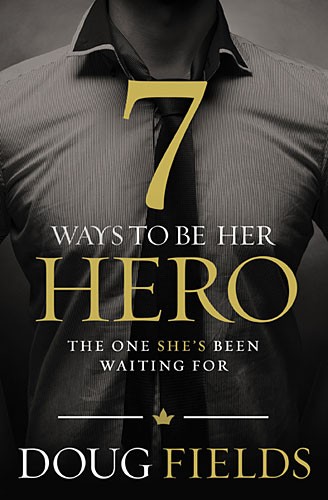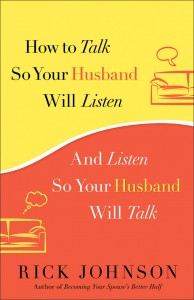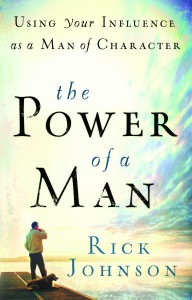Once upon a time there was a man who had been raised in an alcoholic (drug addicted/dysfunctional/abusive—you fill in the blank) home. It was a fearful environment and he was afraid a lot. He hated those feelings even as a young boy because they made him feel “unmanly.”
When he was twelve years old, he found out during a drunken argument between his parents that his father was actually his stepfather. It explained why his “father” had so much contempt for him and wanted nothing to do with him.
About this time the boy made a huge discovery. He realized that if he just got mad, he did not have to feel those humiliating emotions of being scared and afraid any longer. As the boy grew into adolescence, he became very angry. He became known as the “fighting guy,” and many other kids were afraid of him. He was angry because he was actually afraid. Everything was so difficult. Without a positive male role model to show him how a man lives life, makes decisions, and solve problems, the young man was forever having to discover things on his own. It was frustrating because he made many mistakes and often had to do things over and over again until he figured them out on his own. Failing at things also caused him to be humiliated and angry. Other kids laughed at him when he messed up. As his anger and frustration mounted, he began to strike out at others. He wanted to hurt them before they could hurt him or, even worse, laugh at him and mock him for his failures. Worst of all, the young man did not know how to be a man, or even if he was a man. He had never been shown how a successful, authentically masculine man lives and succeeds at life. So he tried all the things that the world told him would make him manly—he bedded fatherless girls, he was prideful, he fought those who he perceived were disrespectful to him, he worked hard, he drank large quantities of booze, he smoked cigarettes, and he became a loner.
Life became about survival, and so even though he was smart and athletic, school, grades, sports, college scholarships, and even the future were of less importance than surviving and protecting his heart.
He grew older and became an island—a rock of ice. And he was alone, never needing anyone, because then he would never have to take a chance on being hurt again by anyone. He took drugs to dull the pain and fill the void he felt. He was a hard man—hard on others but hardest on himself.
And he was miserable. But it would not be manly to admit pain, fear, and uncertainty. So he stuffed it deep within himself. Because that’s what real men do. Or so he thought.
Because of all these reasons, he made poor choices early in his life. In his rage and anger against the injustice of being a lost and lonely man who did not know how to navigate the difficulties of life, he grasped at other role models of masculinity who seemed “manly” to him. He followed their leadership and lived a selfish, self-centered existence, using others for his own personal gratification.
And so goes the lives of thousands, perhaps millions, of men in this country and other countries around the world. Men who are not taught a meaningful lesson of what it means to be a man, who just settle for a life of existence and then oftentimes make the lives of those around them miserable. Men who grow up not knowing if or whether they are finally men and what that role means. Men who yearn for that confirmation but are afraid to ask for fear of the answer they might receive. Men who have been “programmed” from childhood to make negative choices they seemingly have no control over.
Men who have had no father or a poor role model for a father-figure are left to discover the secrets of masculinity on their own. It can be a frightful, frustrating, and depressing challenge without a guide. They yearn for authenticity, but no matter how hard they try, they never quite seem to be able to grasp it; always feeling like it’s just outside their reach. Oftentimes men from these kinds of backgrounds end up in any one of several scenarios: prison; forced to marry (or abandon) a girl he didn’t love because he impregnated her; addicted to drugs, alcohol, sex, or work; or, at best, he settles for living out a shallow life of redundancy and despair because it was just good enough to be acceptable even though it did nothing to inflame his passions or satisfy his longing for significance. Even those men who do not start out life with traumatic beginnings often fall short of the glory and significance we all dream about and yearn for in our hearts.
Fatherlessness is the epidemic of our culture, ruining more lives than all diseases put together. It destroys lives but creates generations of pain and despair. Fatherless boys are often justifiably angry and lash out at others in their rage. Fatherless girls turn that anger and pain inward and lash out at themselves.
As a man, what are you doing to make a difference? Guys if you want to join a reading and discussion group about this book and discover what authentic masculinity can and should look like, join us at: The Power of a Man
Excerpted from The Power of a Man, by Revell Publishing











